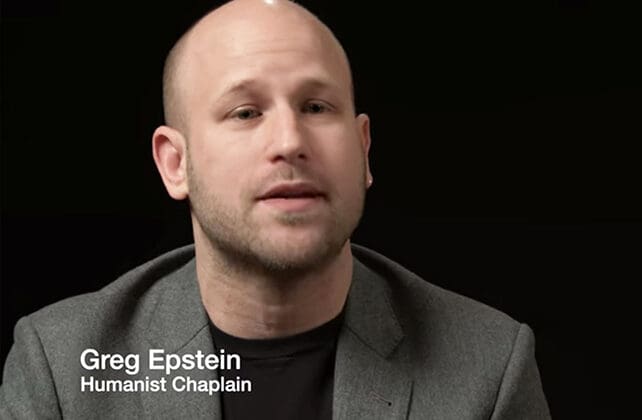
by Mark Silk
(RNS) After The New York Times reported a couple of weeks ago that Harvard’s 40-plus chaplains had unanimously elected an avowed atheist as their chaplain-in-chief, Robert Barron, an auxiliary bishop and pontificator maximus of the Catholic archdiocese of Los Angeles, declared, “Well, everybody, I think another shark has just been jumped.”
Be it noted that Harvard has been accused of jumping the theological shark for a long, long time.
Established in 1636 to educate the Puritan clergy of the new Massachusetts Bay Colony, by century’s end Harvard was subjected to the strenuous if fruitless efforts of the Rev. Increase Mather and his son Cotton to root out creeping liberalism. “Godless Harvard” they called it, and the name stuck.
When the Rev. George Whitefield blew through the colonies preaching his Calvinist Great Awakening in 1740, he denounced the college as a place where “Bad Books,” like those of the notoriously latitudinarian Archbishop of Canterbury George Tillotson, were “fashionable.”
And let us not fail to mention the Unitarianism that captured the entire eastern Massachusetts elite in the early 1800s. From the Veritas of Christ the new Trinity became the Fatherhood of God, the Brotherhood of Man, and the Neighborhood of Boston.
But back to Bishop Barron.
“I have a problem with the chaplains of Harvard University electing someone who by his own admission does not believe in God precisely as chaplain. A chaplain is someone who has to do with a chapel. A chapel is a place where God is worshipped. If you don’t believe in God, then you’re not a chaplain.”
For my part, I have a problem with prelates who spout such nonsense.
Yes, a chaplain may be indissolubly connected to a chapel. In the case of the college where I work, there is a chapel where God is worshipped, a rather magnificent Episcopal one in fact, with which the college chaplain, an Episcopal priest, has quite a lot to do.
But there are any number of chaplains who do not have to do with a house of worship. The chaplains of the U.S. Senate and House of Representatives function apart from particular chapels, as did the Rev. Mychal Judge, the chaplain of the New York City Fire Department who died heroically on 9/11.
Here’s how Department of Defense Directive 1304.28 begins its description of the duties of U.S. military chaplains:
a. Meet the religious requirements and care for the spiritual needs of Service members and other authorized persons.
b. Advise individuals on religion, morals, ethics, well-being, and morale.
The chaplaincy at non-sectarian institutions of higher learning such as Harvard function, mutatis mutandis, the same way. They are in the business of meeting the spiritual needs of the academic community and providing religious, moral and ethical advice to individuals.
There is no doubt that Greg Epstein, the aforementioned atheist who has served Harvard and M.I.T. as a Humanist chaplain since 2005, is seriously engaged in all of the above. As he told the Times, “There is a rising group of people who no longer identify with any religious tradition but still experience a real need for conversation and support around what it means to be a good human and live an ethical life.”
In fact, atheists and agnostics constitute nearly 40% of Harvard’s freshman class this year — twice the size of the next largest group (Catholics). By the numbers alone, the chaplain who ministers to them is entitled to a leadership position.
But that is not to say that Harvard lacks a godly member of the clergy in charge of a significant place of worship on the premises. At the moment, that’s an Episcopal priest named Matthew Ichihashi Potts, who has had the title of Pusey Minister in the Memorial Church and Plummer Professor of Christian Morals since taking office July 1.
So, not to worry, Bishop Barron. Christian worship is alive and well at Godless Harvard. Whether the Mathers would be satisfied, of course, is another question.
